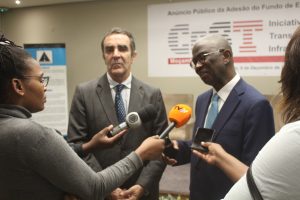Prior to CoST: Public infrastructure in context
According to Transparency International’s Corruption Perceptions Index, in 2019 Mozambique was ranked 146 out of 198 countries, with a score of 26 out of 100. This is an increase of 12 places since the Index was published in 2018. Meanwhile, according to the United Nations’ Electronic Governance Development Index, Mozambique scored 0.35 in 2020, placing it 163 out of 193 countries globally.
At a workshop held jointly by CoST and the International Labour Organisation (ILO) in 2019, it became clear that steps to enhance transparency and accountability are often already in place but are implemented in a fragmented and unsystematic manner. CoST’s value in this respect will be to align these efforts, join up approaches between government departments and reduce duplication across the whole of the sector. This is especially pertinent as Mozambique grapples with reconstruction after Cyclones Idai and Kenneth, and increases disaster preparedness with more resilient infrastructure.
CoST Mozambique: How it all began

In 2019, the Mozambique Road Fund submitted a membership application letter to the CoST board, as part of the CoST competitive process. The Road Fund’s interest in joining CoST came as a result of the aforementioned workshop, which was held to explore the need for greater transparency and accountability in Mozambique’s infrastructure sector. The workshop focussed on the CoST core features of assurance, disclosure, social accountability and multi-stakeholder working and their potential impact in Mozambique.
The Road Fund, which hosts the CoST Mozambique programme, stated in its application that CoST could be a catalyst for addressing some of the challenges the country faces. Mozambique plans to disclose data in line with the Open Contracting for Infrastructure Data Standard (OC4IDS) for projects carried out through the Integrated Feeder Road Development Project. To improve public engagement in these projects, the programme will engage newspapers and community radio stations to disseminate information and assurance findings in local dialects. At the launch of CoST Mozambique’s programme in November 2019, CoST Board Deputy Chair George Ofori said:
It is imperative the country rebuilds in a resilient and sustainable way: adopting the CoST approach to rural road repairs in affected areas – and potentially more widely in the future – will help ensure that projects are planned and implemented in a transparent, inclusive and accountable way, which will help achieve this long-term goal.
Due to the impact of Covid-19, CoST Mozambique’s activities in 2019 were scaled back. However, a consultant was appointed to support the establishment of a Multi-Stakeholder Group (MSG) which was announced in 2020. Organisations represented on the MSG include the Road Fund, the Ministry of Economy and Finance, the Mozambican Federation of Transport Association and the Foundation for Community Development.